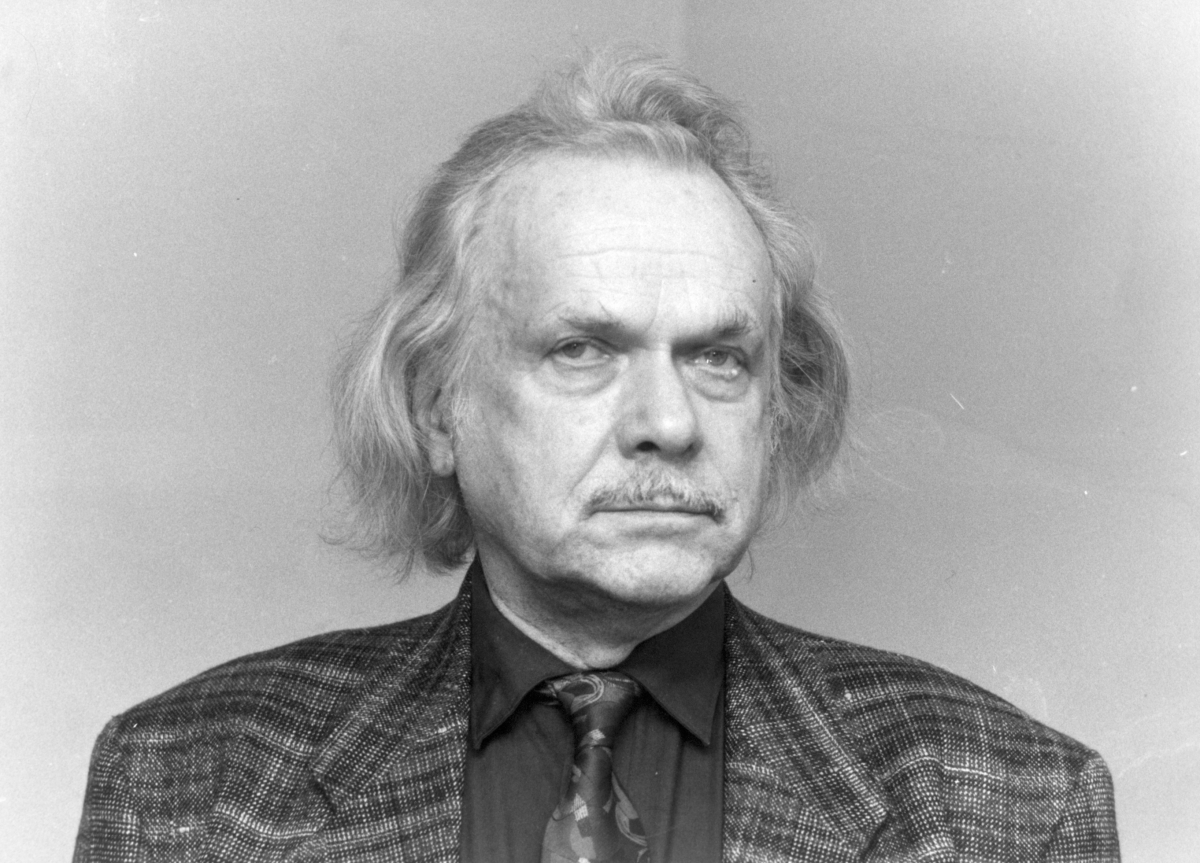
Ilmar Laaban
Ilmar Laaban (11. XII 1921 – 29. XI 2000) was an Estonian poet, translator and publicist. Widely considered the first Estonian surrealist, his works focus on poetic opportunities and sound plays that are detached from logic.
Laaban was born in Tallinn and from 1934–1940, studied at the First Boys` Gymnasium in Tallinn. From 1939–1940 and from 1941–1942, he studied composition and piano at Tallinn Conservatoire. In 1940, he enrolled in the University of Tartu, where he spent a year studying Romance languages. In May 1943, he emigrated to Sweden, where he continued studying Romance languages and philosophy in Stockholm University. He continued as a professional writer, giving lectures and publishing articles in many languages and in various publications of different countries. In 1975, he was elected a member of the International Association of Art Critics (AICA) and in 1989, he became an expatriate member of the Estonian Writers` Union.
Laaban`s first writings were published in the student magazine Realist from 1936–1938 and in the publication Eesti Noorus of the Nationwide Estonian Youth Association, in which he published poetry, articles and essays. In 1946, Laaban`s poetry collection Ankruketi lõpp on laulu algus (‘The End of the Anchor Chain is the Beginning of the Song’) was published in Stockholm. It is considered the first intentional and consistent example of surrealism in Estonian literature: logical connections are not present in metaphors and associations. In 1957, Laaban published a collection of wordplay aphorisms under the title Rroosi Selaviste. Both works have been reprinted in the anthology Oma luulet ja võõrast (‘Own and Others` Poetry’, 1990) which also included yet unpublished poems. Laaban was interested in sound poetry as well, which connects sounds, speech and music, and called the auditive poetry he created “häälutused”. In 1998, a CD with Laaban`s auditive poetry Ankarkättingens slut är sångens början (‘The End of the Anchor Chain is the Beginning of the Song’) was released. He has written many palindromes both in Estonian, Swedish and German; in 2008, a collection of these was published as a book Eludrooge ego-ordule.
Laaban has translated into Estonian French (Guillaume Apollinaire, Charles Baudelaire, etc.), Swedish (Gunnar Ekelöf, Erik Lindegren, etc.) German (Rainer Maria Rilke, Kurt Schwitters, etc.) and Spanish (Federico García Lorca, Octavio Paz, etc.) poetry. His translations of Swedish and French poetry were published in the collection Magneetiline jõgi (‘Magnetic River’) in 2001. He has also translated Estonian poetry into German and Swedish (including Artur Alliksaar, Betti Alver, Viivi Luik, Juhan Liiv, Gustav Suits, etc.). In addition to fiction and translations, Laaban has published many articles and essays on literature and art in Swedish that have been published in several volumes in Lund and in the 1997 Estonian language collection Marsyase nahk (‘Skin of Marsyas’). This collection was also recognized with the essay award by the Cultural Endowment of Estonia.
M. U. (Translated by A. S.)
Books in Estonian
Poems
Ankruketi lõpp on laulu algus. Luuletusi 1943–1945. Stockholm: 1946, 123 lk. [Teine trükk: 2008.]
Rroosi Selaviste. Stockholm: Vaba Eesti, 1957, 40 lk.
Oma luulet ja võõrast. Tallinn: Eesti Raamat, 1990, 301 lk.
Sõnade sülemid, sülemite süsteemid. Tartu: Ilmamaa, 2004, 405 lk.
Eludrooge ego-ordule. Tallinn: Eesti Keele Sihtasutus, 2008, 88 lk.
Non-fiction
Marsyase nahk. Tekste tekstidest. Tekste piltidest. Tallinn: Eesti Raamat, 1997, 285 lk.
Poetry translations
Magneetiline jõgi: värsitõlkeid prantsuse ja rootsi luulest. Tõlkinud ja järelsõna: Ilmar Laaban; koostanud ja järelsõna: Jaan Malin; toimetanud Jaan Malin ja Ülo Treikelder; järelsõna tõlkinud Ene-Reet Soovik; kujundanud Jüri Kaarma. Tallinn: Eesti Keele Sihtasutus, 2001, 287 lk.
About Ilmar Laaban
Ankruketi lõpp on bibliograafia algus: Ilmar Laabani tegude loend = The end of the anchor chain is the beginning of the bibliography: list of Ilmar Laaban’s works. Koostajad Aino Tamjärv, Jaan Malin; eessõna: Marin Laak, saatesõnad: Jaan Malin. Tartu: Tartu Ülikooli Kirjastus, 2021, 333 lk.



